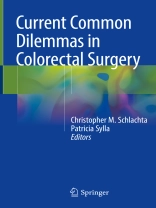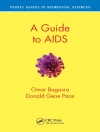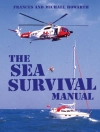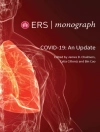This text reviews the areas of colorectal surgery that are at the cutting edge of innovation, paradigm shift and controversy with regard to diagnosis, patient selection, treatment algorithm, and therapeutic approaches. From the impact of enhanced recovery protocols on traditional colorectal practices, to that of novel strategies merging endoscopic and surgical techniques, to recent paradigm shifts in the management of common colorectal disorders, this text provides readers with an update on current controversies and evolving treatment rationale in the management of common colorectal diseases.
Current Common Dilemmas in Colorectal Surgery provides a guide for the current common dilemmas that caregivers encounter in their daily practice. It is of great utility to colorectal surgeons, surgical oncologists and general surgeons practicing colorectal surgery, senior residents in general surgery training or surgical oncology or colorectal fellowships, allied healthcare professionals involved in the care of patients with colorectal disease, pharma and biomedical technology industry with an interest in current care of patients with colorectal disease.
Inhoudsopgave
To prep or not to prep.- Practice Guidelines and Future Directions of Bowel Preparation: Science & History.- Enhanced Recovery Pathways: Is it Laparoscopy or is it Everything Else?.- Improving endoscopic detection of dysplasia in IBD: where do we stand? .- Management of Dysplasia in IBD.- Beyond Piecemeal Polypectomy: EMR and ESD.- Transanal Endoscopic Surgery (TES).- The 3 A.M. Laparoscopic Bowel Surgery-Selection, Preparation and Techniques.- Fulminant Clostridium difficile colitis: Indications and extent of surgery.- Fulminant Clostridium difficile colitis: Colon-preserving therapies.- Perforated diverticulitis: Laparoscopic lavage and drainage.- Perforated diverticulitis: What are the options for resection?.- Perforated diverticulitis: When is interval resection really indicated?.- Utility of pelvic floor testing for clinical assessment of pelvic floor disorders.- Rectal prolapse in the healthy patient: Is perineal approach ever indicated?.- Rectal prolapse in the healthy patient: Which abdominal approach?.- Obstructed defecation: When is surgery indicated?.- Fecal incontinence: Is sacral nerve stimulation always the answer?.- Is there still a role for hand assisted laparoscopic surgery (HALS)?.- Intracorporeal anastomosis for right colon resection: Should this be the preferred method?.- Transrectal specimen extraction: Should this be catching on?.- Parastomal Hernia: An Ounce of Prevention.- Parastomal Hernia: Optimal Strategies for Repair.- Proctectomy for advanced rectal cancer: APE or ELAPE?.- Transanal TME: Why go bottom-up!.- Management of low rectal cancer after complete clinical response.- Optimizing function for very low rectal tumors: Intersphincteric resection or APR?.- Optimal Coloanal Reconstruction: J pouch, Straight, Stapled, and Hand-Sewn.- Short Course vs. Long Course Radiotherapy: Pros and cons.- Intersphincteric Resection: Perineal or Abdominal dissection first?.- Assessing anastomotic integrity and perfusion.- Laparoscopic TME: Is there a verdict?.
Over de auteur
Christopher M. Schlachta BSc, MDCM, FRCSC, FACS Professor, Department of Surgery and Department of Oncology Schulich School of Medicine and Dentistry, Western University London Health Sciences Centre, University Hospital 339 Windermere Road, London, Canada, N6A 5A5
Patricia Sylla MD, FACS, FASCRS
Assistant Professor, Department of Surgery, Division of Colorectal Surgery
Mount Sinai School of Medicine
5 East 98th Street
New York, NY 10029












